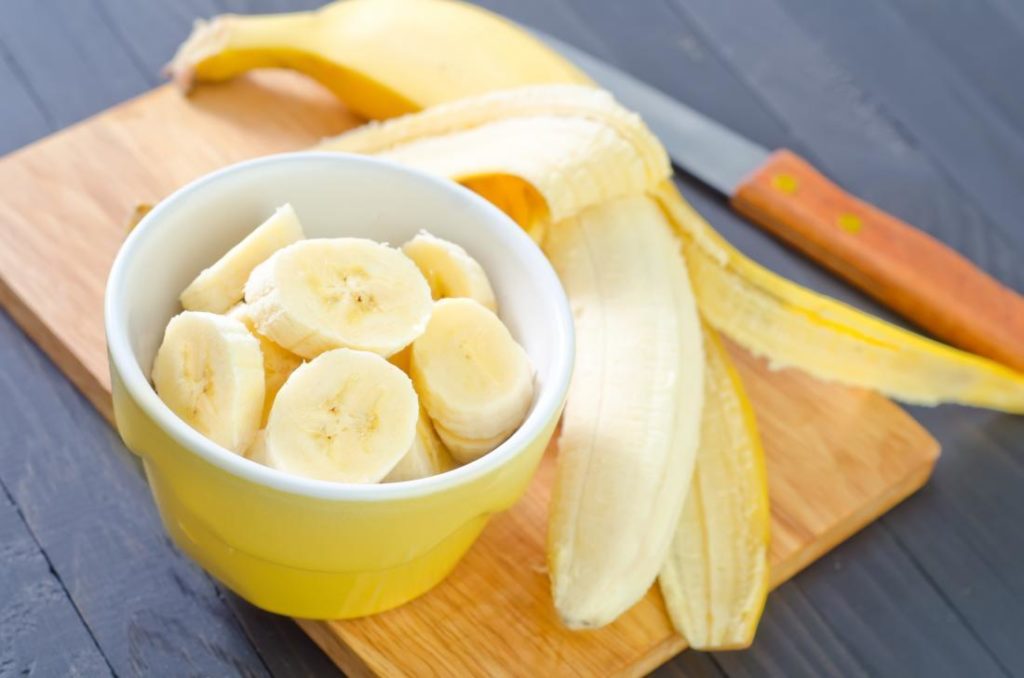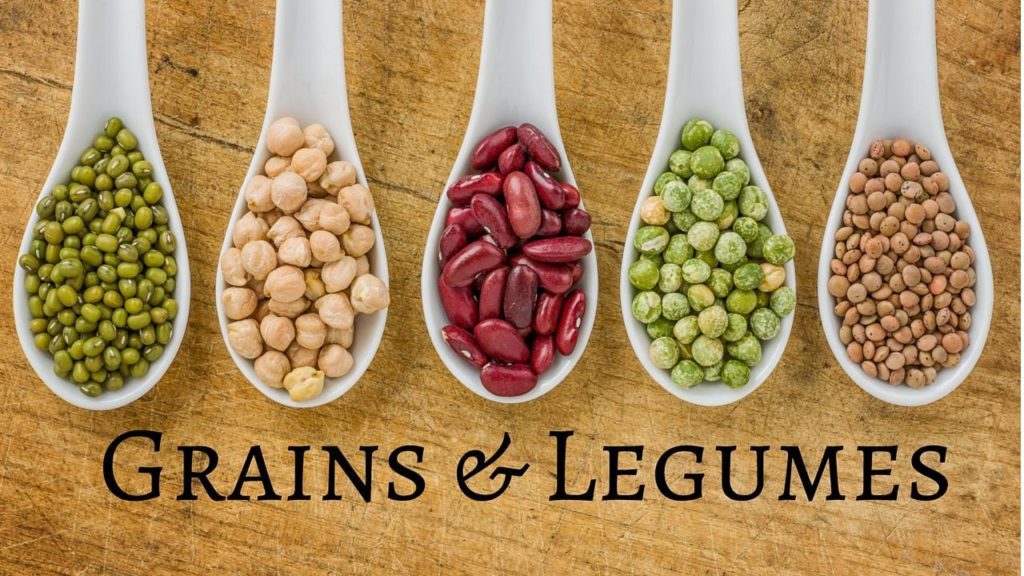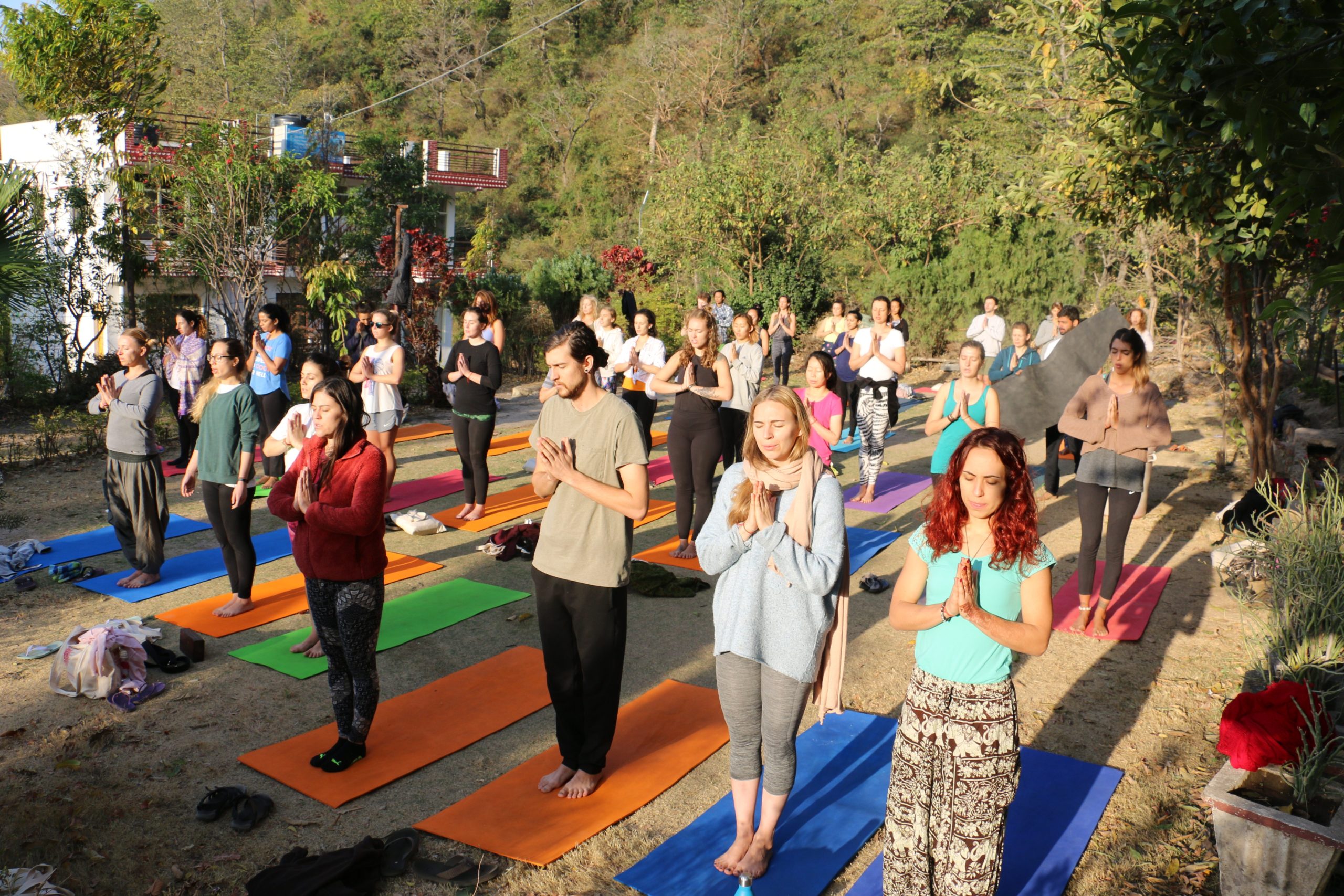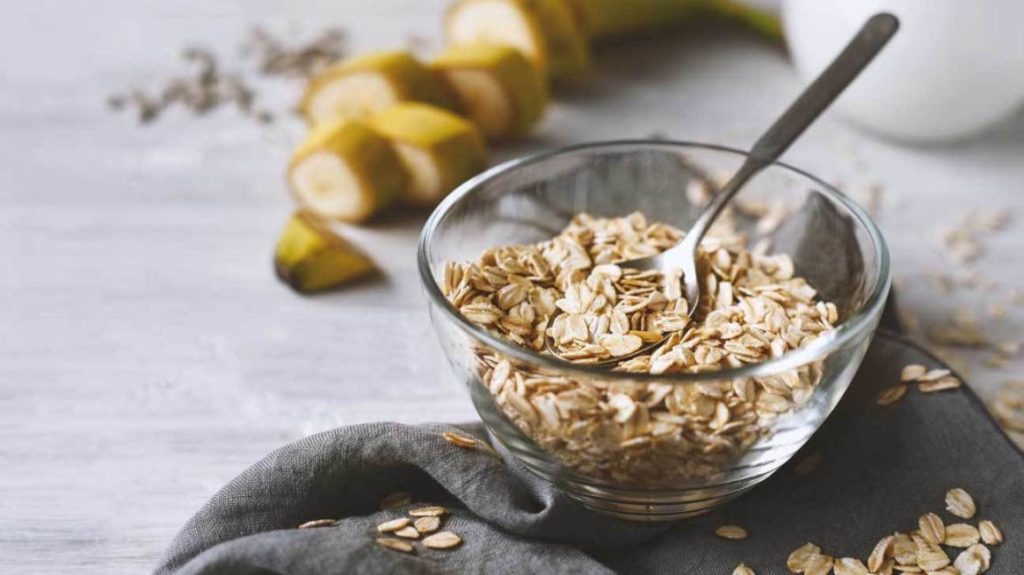— Introduction —
In Indian philosophy, Sattva means holiness. The qualities of a sattvic lifestyle include virtuous behaviour, cleanliness, purity, calmness, stability, and routine. A sattvic lifestyle is designed to help a person lead an ascetic life. All foods that enhance the quantity and quality of life strengthen & revitalize, improve mental calmness, evoke a loving nature from the person, support health comes under the sattvic diet. Generally, sattvic foods are easy to digest and absorb, providing energy and nourishing the body without taxing the digestive tract. It creates happiness, clarity, and lightness in the body instead of drowsiness or heaviness. A sattvic diet should be the diet that encourages the perfection of plasma(rasa dhatu). Here we have listed 7 of the best sattvic foods to incorporate into your yogic diet.
— Bananas —
 Eating only two bananas will give your body enough fuel to perform yoga asanas or workout for 1-1:30 hours. Bananas are also ideal for eating during mid-day when you are tired and sluggish so forget the caffeine or sugar candy as bananas provide a level of energy that lasts for a longer time without any dramatic crash caused by caffeine. Bananas are a rich source of potassium, and they help the body’s circulatory system deliver oxygen to the brain. As it is moderately released in the body, it helps in regulating blood pressure, prevention of muscle cramps during a yoga session and keeps the body hydrated.
Eating only two bananas will give your body enough fuel to perform yoga asanas or workout for 1-1:30 hours. Bananas are also ideal for eating during mid-day when you are tired and sluggish so forget the caffeine or sugar candy as bananas provide a level of energy that lasts for a longer time without any dramatic crash caused by caffeine. Bananas are a rich source of potassium, and they help the body’s circulatory system deliver oxygen to the brain. As it is moderately released in the body, it helps in regulating blood pressure, prevention of muscle cramps during a yoga session and keeps the body hydrated.
— Legumes and grains —
 Legumes are one of the best sattvic foods for a yogi. They are easy to digest and are a great alternative to meat. Beans, Peas, Lentils, and soy are legumes that are rich in energy, abundant in fiber, and a good source of B-group vitamins. Dried mature beans if taken in moderate consumption can help reduce the risk of heart attack by 38% according to research done in Costa Rica. They also help in lowering cholesterol levels. Legumes are a complete source of protein if combined with whole grains.
Legumes are one of the best sattvic foods for a yogi. They are easy to digest and are a great alternative to meat. Beans, Peas, Lentils, and soy are legumes that are rich in energy, abundant in fiber, and a good source of B-group vitamins. Dried mature beans if taken in moderate consumption can help reduce the risk of heart attack by 38% according to research done in Costa Rica. They also help in lowering cholesterol levels. Legumes are a complete source of protein if combined with whole grains.
— Avocados —
Avocados contain a higher percentage of protein, dietary fiber, cancer-fighting antioxidants, potassium and magnesium, which will fuel your body before performing yoga asanas. Healthy fats have been found in avocados that digest slowly keeping you full for longer hours. You should remember to eat Avocados at least 1 hour before your yoga session so that all the important nutrients like folate get absorbed fully by the body. Therefore, you can further continue your yoga practices with Yoga Teacher Training in Rishikesh.
— Tofu —
Tofu is an excellent source of protein, iron, vitamin E, amino acids, micronutrients, and calcium. It improves your cardiovascular health by decreasing the high cholesterol level. By incorporating 100g of Tofu in your yogic diet can help provide your body with 8.1g of protein and only 0.5g of saturated fat. Tofu also contains all nine amino acids along with copper, vitamin B1, and zinc. Overall one of the best sattvic food from a nutritional perspective.
— Watermelon —
 Watermelon contains around 92% of water which is hydrating after a workout for a yogi. It detoxifies the body by removing toxins, potassium, and magnesium present in watermelon also helps in the process of detoxification. It also helps in maintaining a healthy weight, reduces blood pressure and promotes younger-looking skin because it contains omega-3 fatty acid, which is very beneficial for our skin. Potassium deficiency can trigger muscle cramps; eating watermelon can help reduce these muscle cramps as it contains high levels of potassium.
Watermelon contains around 92% of water which is hydrating after a workout for a yogi. It detoxifies the body by removing toxins, potassium, and magnesium present in watermelon also helps in the process of detoxification. It also helps in maintaining a healthy weight, reduces blood pressure and promotes younger-looking skin because it contains omega-3 fatty acid, which is very beneficial for our skin. Potassium deficiency can trigger muscle cramps; eating watermelon can help reduce these muscle cramps as it contains high levels of potassium.
— Oats—
Oats are natural non-processed grain which makes it high on fiber content, it helps in easy digestion of food, and at the same time, it helps you in your weight loss. Oats help in the muscle-building process which is very important after an exercise or workout. Oats are nutritionally well balanced, per 100 gms contains 17 % protein and 11% fiber. It has all the necessary vitamins, minerals, dietary fibers and antioxidants that are required for your body.
— Beets —
 Beets contain vitamins A, C, and B-group vitamins and are a rich source of potassium, magnesium, iron, calcium and dietary fiber. It contains nitrates that expand our blood vessels which in turn helps pull more oxygen to the muscles. It keeps you away from feeling fatigued after a sweaty yoga session. Raw beet greens contain vitamin K which promotes strong bones and purifies the blood. Along with this sattvic food diet, you can also make your career in yoga from 300-hour yoga teacher training in Rishikesh.
Beets contain vitamins A, C, and B-group vitamins and are a rich source of potassium, magnesium, iron, calcium and dietary fiber. It contains nitrates that expand our blood vessels which in turn helps pull more oxygen to the muscles. It keeps you away from feeling fatigued after a sweaty yoga session. Raw beet greens contain vitamin K which promotes strong bones and purifies the blood. Along with this sattvic food diet, you can also make your career in yoga from 300-hour yoga teacher training in Rishikesh.



